
Majestic Goda Mountains: Djibouti's Untamed Beauty
Nestled in the heart of Djibouti, the Goda Mountains offer a breathtaking escape into nature. This mountain range is a haven for outdoor enthusiasts and nature lovers, boasting stunning landscapes, diverse wildlife, and fascinating flora. The Goda Mountains are home to the Day Forest National Park, one of the last remaining forested areas in Djibouti. The park is filled with dense woodlands, unique plant species, and a variety of birdlife, making it a paradise for bird watchers and botanists alike. The cool climate of the mountains provides a refreshing contrast to the arid lowlands, making it an ideal spot for hiking and exploring. Visitors to the Goda Mountains can also immerse themselves in the rich cultural heritage of the Afar people, who have inhabited the region for centuries. Their traditional way of life, vibrant markets, and warm hospitality add an enriching cultural dimension to any visit. Whether you're trekking through the lush forests, spotting rare wildlife, or engaging with local communities, the Goda Mountains promise an unforgettable adventure.
Local tips in Goda Mountains
- Wear sturdy hiking boots; the terrain can be rugged and uneven.
- Bring plenty of water and snacks, as amenities are limited in the mountainous area.
- Hire a local guide to enhance your trekking experience and learn about the local flora and fauna.
- Visit during the cooler months (November to February) for the most comfortable climate.
- Respect local customs and traditions, especially when visiting Afar communities.
Majestic Goda Mountains: Djibouti's Untamed Beauty
Nestled in the heart of Djibouti, the Goda Mountains offer a breathtaking escape into nature. This mountain range is a haven for outdoor enthusiasts and nature lovers, boasting stunning landscapes, diverse wildlife, and fascinating flora. The Goda Mountains are home to the Day Forest National Park, one of the last remaining forested areas in Djibouti. The park is filled with dense woodlands, unique plant species, and a variety of birdlife, making it a paradise for bird watchers and botanists alike. The cool climate of the mountains provides a refreshing contrast to the arid lowlands, making it an ideal spot for hiking and exploring. Visitors to the Goda Mountains can also immerse themselves in the rich cultural heritage of the Afar people, who have inhabited the region for centuries. Their traditional way of life, vibrant markets, and warm hospitality add an enriching cultural dimension to any visit. Whether you're trekking through the lush forests, spotting rare wildlife, or engaging with local communities, the Goda Mountains promise an unforgettable adventure.
When is the best time to go to Goda Mountains?
Iconic landmarks you can’t miss
Lac 'Assal
Explore Lac 'Assal, Djibouti: Africa's lowest point, a hyper-saline lake with surreal landscapes and rich salt mining history.
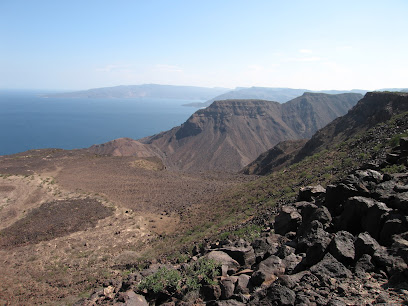
Mosquée Al-Hamoudi
Discover the iconic Al-Hamoudi Mosque in Djibouti City, a symbol of Islamic heritage and architectural beauty, located near Place Mahmoud Harbi.
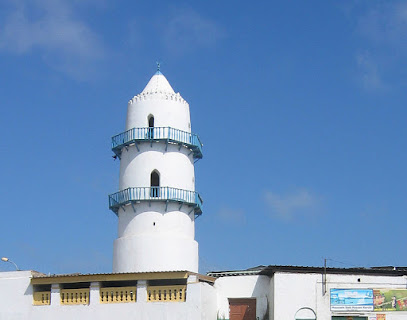
The People's Palace
A monumental complex in Djibouti City symbolizing the nation's freedom, unity, and aspirations for a brighter future.
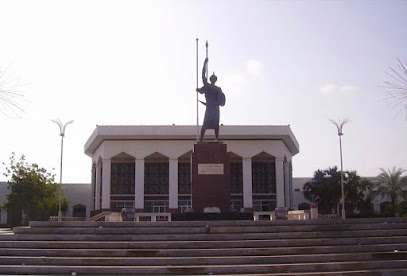
Sables blancs
Discover Tadjoura's pristine beach with turquoise waters, white sands, and a tranquil escape into Djiboutian culture and natural beauty.
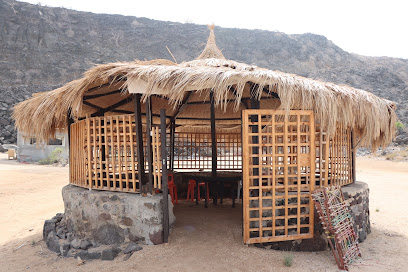
Moucha Island
Discover Moucha Island: Pristine beaches, vibrant coral reefs, and a tranquil escape in the heart of Djibouti's Gulf of Tadjoura.
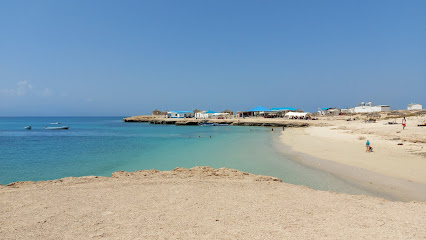
Gulf of Tadjoura
Explore Djibouti's Gulf of Tadjoura: Swim with whale sharks, discover vibrant reefs, and immerse yourself in rich coastal culture.
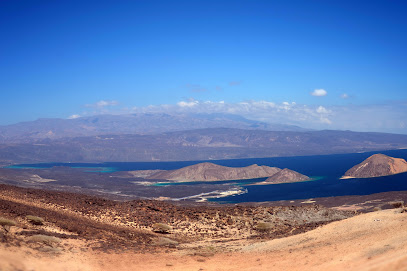
Day Forest National Park
Discover Djibouti's hidden gem: Hike lush trails, spot unique wildlife, and escape the desert heat in this refreshing mountain oasis in Day Forest National Park.
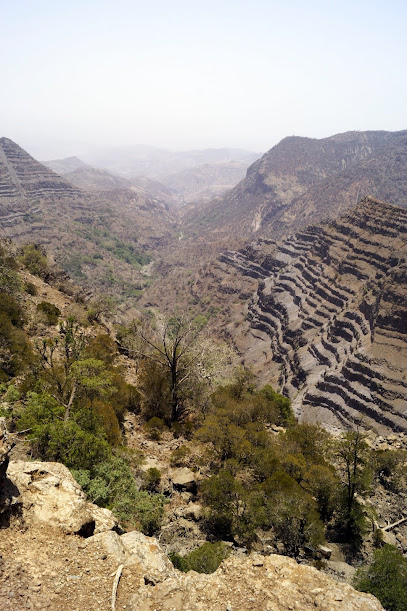
DECAN Refuge
Discover Djibouti's wildlife at DECAN Refuge, a sanctuary dedicated to rescuing, rehabilitating, and preserving the region's unique animal species.
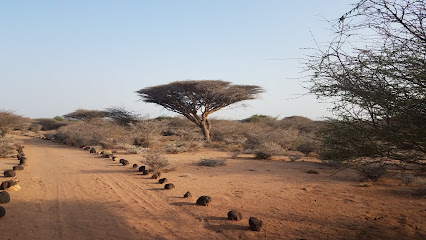
Douda
Discover Douda, Djibouti's hidden gem: a tranquil river oasis offering serene beauty and a peaceful escape for nature lovers.
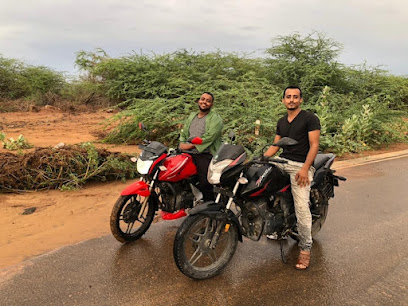
Arta Beach
Discover Arta Beach in Djibouti: Golden sands, turquoise waters, vibrant coral reefs, and rich local culture await in this tranquil coastal paradise.
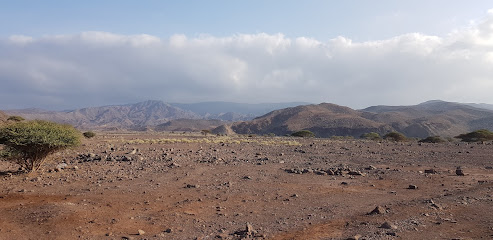
St. Gabriel Ethiopian Orthodox Church, Djibouti
Discover St. Gabriel Ethiopian Orthodox Church in Djibouti: a vibrant cultural and spiritual haven in the heart of the city.
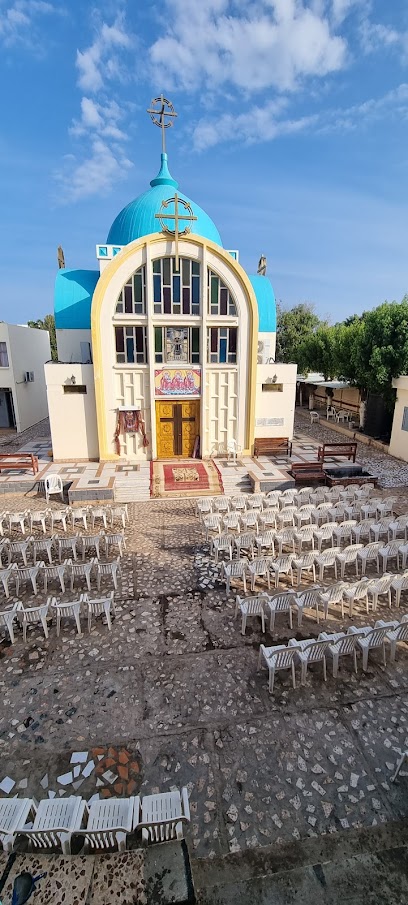
Ahmed nasser
Explore Djibouti's cultural heart at the Ahmed Nasser Museum: A journey through history, art, and traditions in the Horn of Africa.
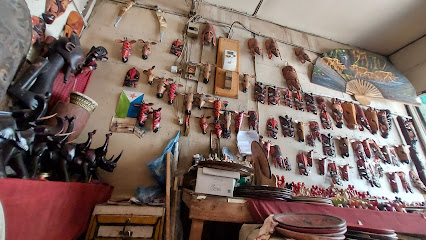
Jardin Public
Escape to Djibouti City's green heart: Jardin Public, a serene oasis blending nature and culture in a historic setting.
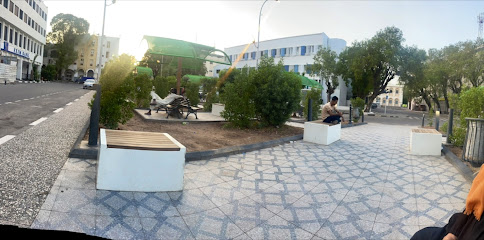
Place Rimbaud
Experience the vibrant heart of Djibouti City at Place Rimbaud, a bustling marketplace and transportation hub in the African Quarter.

Ambado
Discover Djibouti's hidden gem: the Ambado River, a tranquil oasis offering nature, culture, and adventure in an unexpected landscape.

Unmissable attractions to see
Mosquée Al-Hamoudi
Discover the architectural beauty and spiritual essence of Mosquée Al-Hamoudi, a cultural gem in the heart of Djibouti.
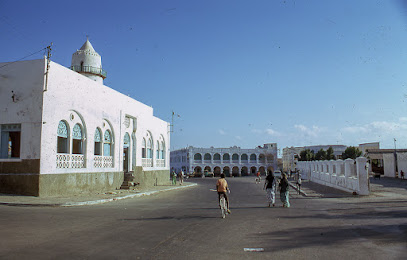
The People's Palace
Explore The People's Palace, a historical landmark in Djibouti, where culture and history come alive for every traveler seeking to understand the past.
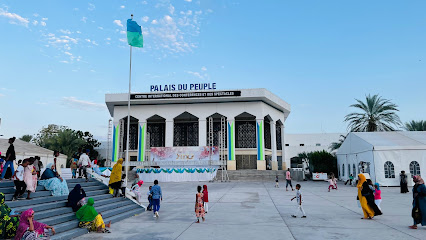
DECAN Refuge
Explore DECAN Refuge in Djibouti - a wildlife haven offering breathtaking landscapes and a chance to connect with nature's beauty.
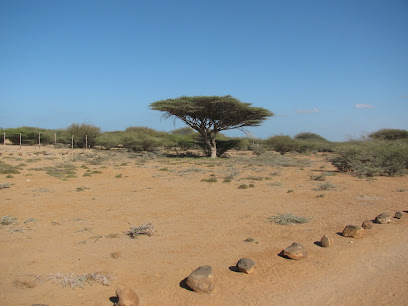
Belvedere sul canyon
Explore the breathtaking vistas of Belvedere sul Canyon, a natural marvel in Djibouti offering unforgettable views and unique geological wonders.
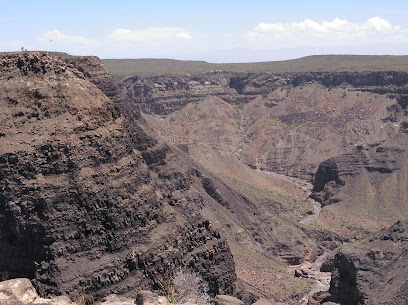
Le K plage - Camp at Moucha Island
Discover Le K Plage on Moucha Island, a tropical paradise in Djibouti with stunning beaches, vibrant marine life, and delightful local cuisine.
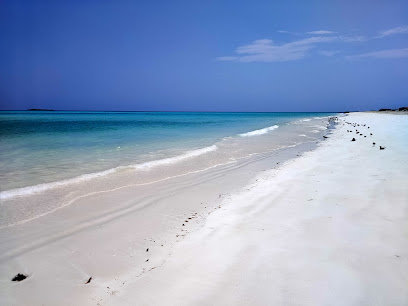
Randonnée Pédestre d'Arta
Discover the breathtaking hiking trails of Randonnée Pédestre d'Arta, where stunning views and natural beauty await every adventurer.
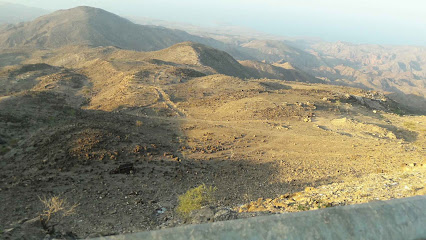
Mangrove de Godoria
Explore the serene beauty of Mangrove de Godoria, a wildlife refuge in Djibouti, home to diverse species and stunning natural landscapes.
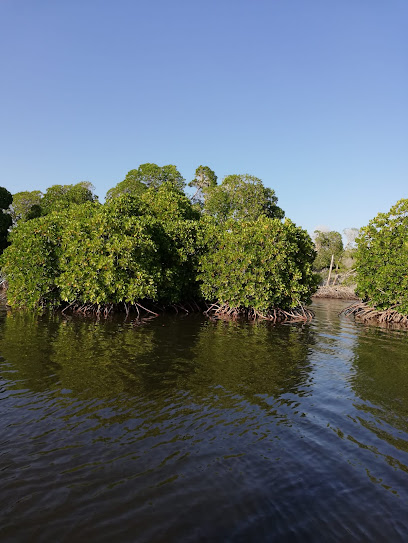
Shark Pit
Experience the thrill of diving with sharks in the stunning Shark Pit at Lac du Goubet, a natural wonder for adventure seekers and marine life enthusiasts.
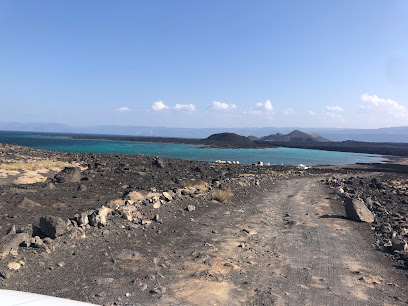
Wahle Daba
Discover the tranquility of Wahle Daba, a serene park in Balbala, perfect for relaxation, picnics, and enjoying nature's beauty.
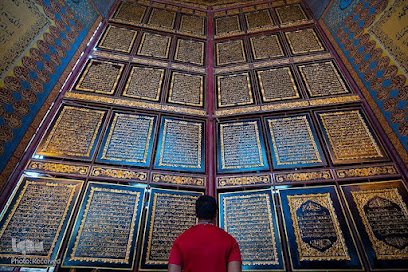
Jardin Public
Explore the tranquil beauty of Jardin Public, a green oasis in Djibouti perfect for relaxation and cultural experiences.
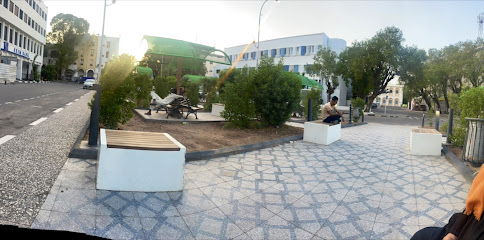
Phare de balbala
Experience the beauty and heritage of Phare de Balbala, a picturesque lighthouse in Djibouti offering stunning coastal views and a glimpse into maritime history.
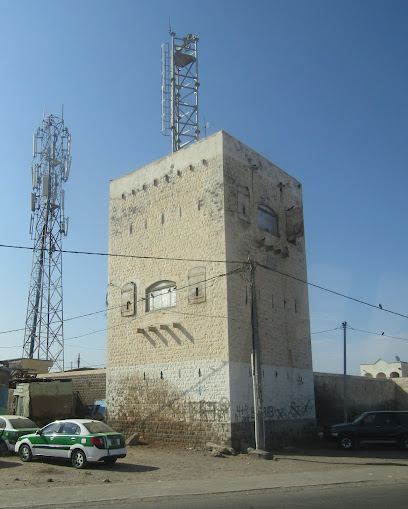
Bankouale campement
Discover the breathtaking hiking trails and stunning landscapes at Bankouale Campement in Airolaf, Djibouti - a perfect escape for nature lovers.

Balbala Caadi
Experience the tranquility of Balbala Caadi, a serene park in Djibouti perfect for relaxation, picnics, and enjoying nature's beauty.

Bouh Garden
Discover the tranquil beauty of Bouh Garden, a lush green oasis in Djibouti perfect for relaxation and nature appreciation.
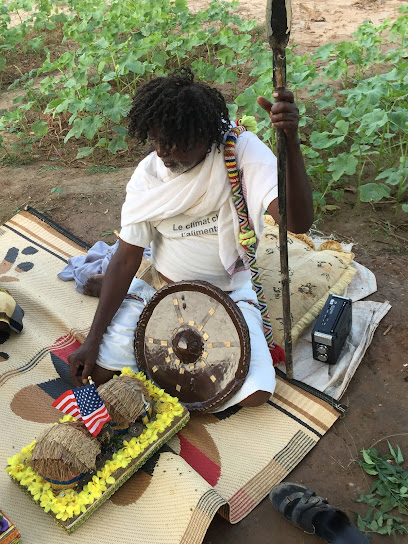
Bahaache
Explore the tranquil beauty of Bahaache Park in Balbala, a serene escape perfect for relaxation, picnics, and enjoying nature's charm.
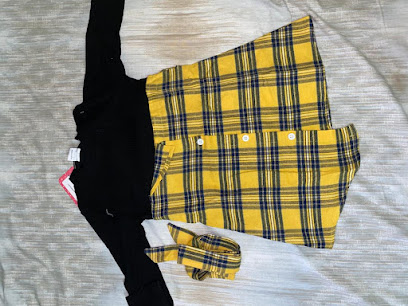
Essential places to dine
Melting Pot
Experience the diverse flavors of Melting Pot in Djibouti – where culinary traditions meet modern dining.
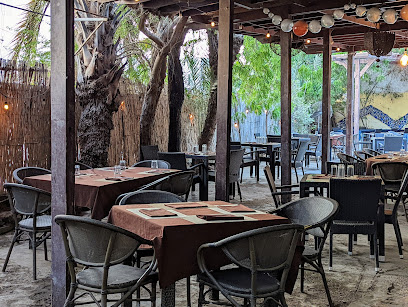
Moonlight Restaurant
Experience authentic Djiboutian cuisine at Moonlight Restaurant – where local flavors meet international flair in a serene setting.
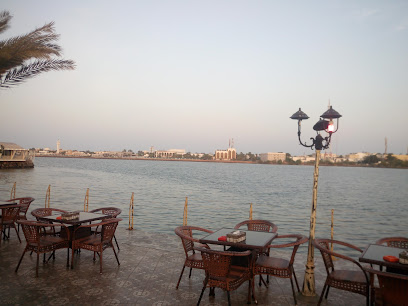
Café de la Gare
Discover the culinary charm of Café de la Gare in Djibouti, where French elegance meets local flavors for an unforgettable dining experience.
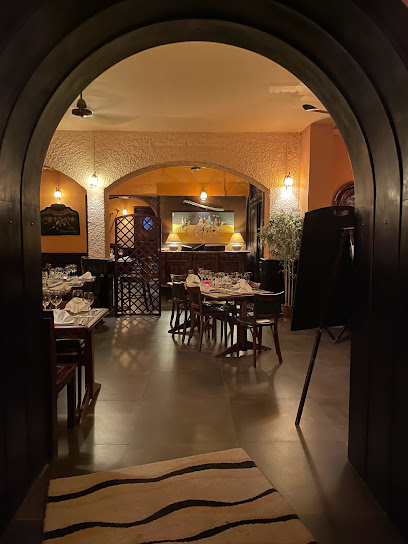
Janateyn Yemeni restaurant
Experience authentic Yemenite cuisine at Janateyn Yemeni Restaurant in Djibouti—where every dish tells a story.
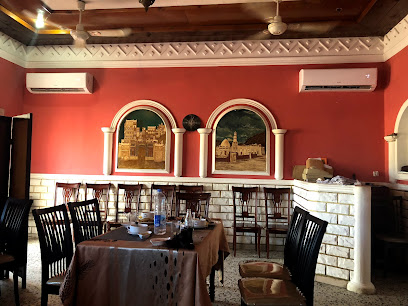
Al-Basha Bin Madi Restaurant
Experience authentic Yemenite cuisine at Al-Basha Bin Madi Restaurant in Djibouti - where every dish tells a story.
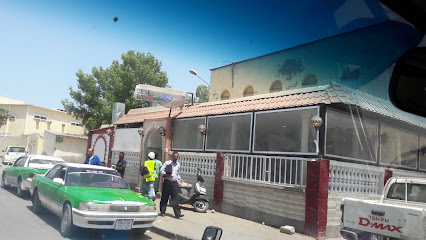
بن ماضي المندي
Discover authentic Yemeni flavors at بن ماضي المندي in Djibouti—where every dish tells a story.
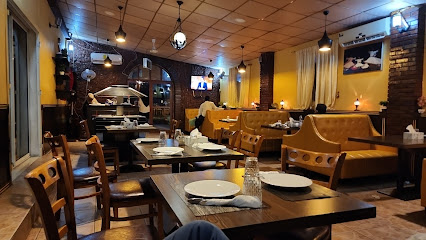
Restaurant Le Longchamp مطبخ بن ماضي
Experience the flavors of Djibouti at Restaurant Le Longchamp - where local cuisine meets international flair.
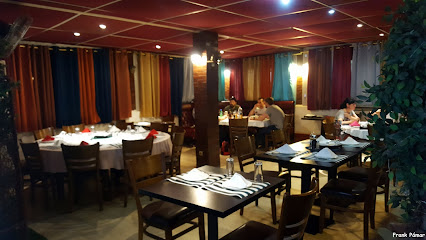
Lac Assal Restaurant
Discover Lac Assal Restaurant in Djibouti – where exquisite local cuisine meets breathtaking views for an unforgettable dining experience.
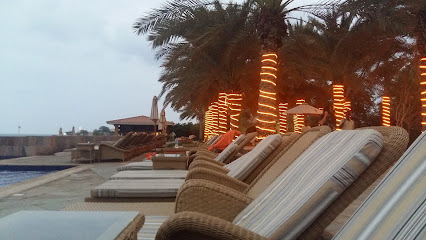
Restaurant La Terrasse مطعم تراس بن ماضي
Experience authentic Ethiopian cuisine at Restaurant La Terrasse in Djibouti – where every dish tells a story!
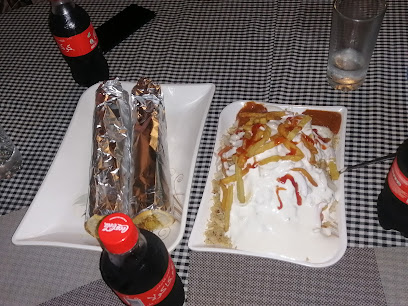
Restaurant Bafena
Experience authentic East African and Ethiopian flavors at Restaurant Bafena in Djibouti - where every meal is a celebration of culture.
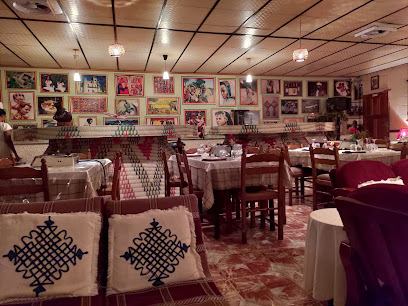
Restaurant L'Historil
Experience authentic East African cuisine at Restaurant L'Historil in Djibouti - where every dish is steeped in tradition and flavor.
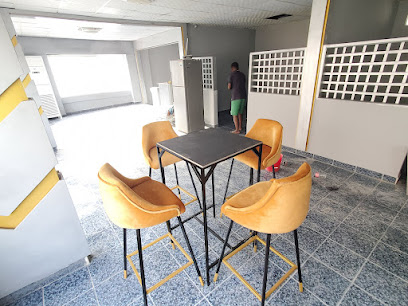
Restaurant Abyssinia
Experience authentic Ethiopian cuisine at Restaurant Abyssinia in Djibouti - where every meal is a celebration of culture and flavor.
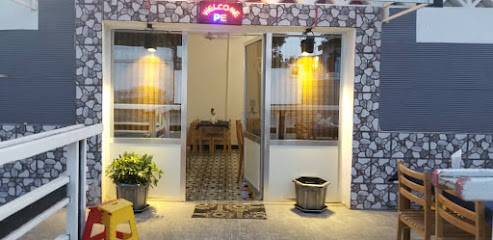
Mesob Restaurant
Discover authentic Ethiopian flavors at Mesob Restaurant in Djibouti – a must-visit destination for food lovers seeking unique culinary experiences.
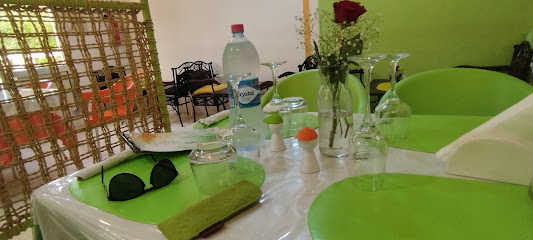
SAWOR Restaurant (Cabri)
Experience authentic Djiboutian flavors at SAWOR Restaurant - a delightful dining destination in Djibouti Ville.
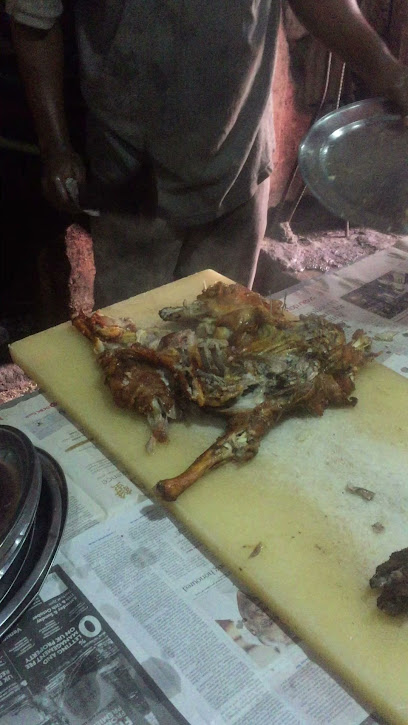
A la Brise de Mer
Discover A la Brise de Mer: A picturesque restaurant offering fresh seafood and breathtaking views along Tadjoura's stunning coastline.
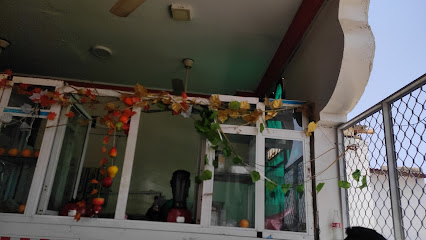
Markets, malls and hidden boutiques
Bawadi Mall Djibouti
Discover Bawadi Mall in Djibouti - a vibrant shopping hub offering luxury brands, local boutiques, diverse dining options, and entertainment for all.

Nougaprix Supermarket
Nougaprix Supermarket: Your one-stop hypermarket in Djibouti for local and international products.
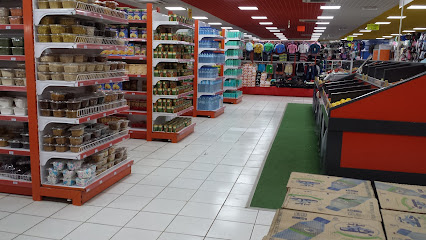
Hypermarché Al Gamil
Experience the best of Djibouti shopping at Hypermarché Al Gamil, where local flavors meet diverse product offerings in a lively atmosphere.
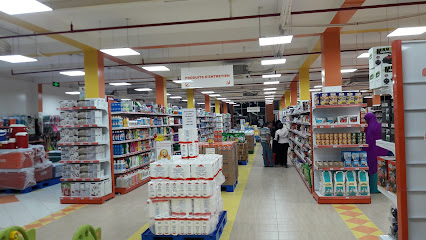
The Spot-Coffee Shop
Discover the cozy ambiance and rich flavors at The Spot-Coffee Shop in Djibouti, where every cup tells a story.
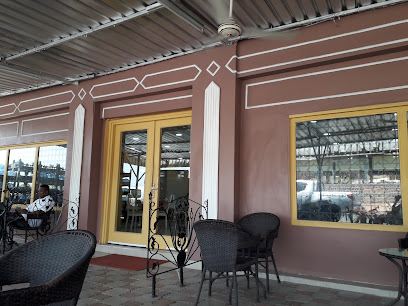
Villa Camille
Experience the essence of Djibouti at Villa Camille - a gift shop, art gallery, restaurant, and yoga sanctuary all in one.
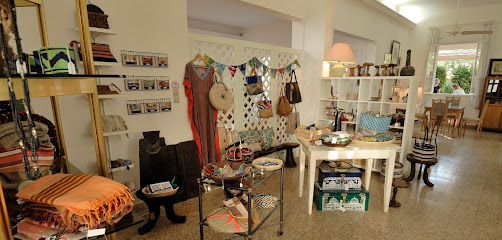
Goda Mountains
Experience the breathtaking beauty and adventure of the Goda Mountains in Djibouti, a perfect destination for nature lovers and outdoor enthusiasts.
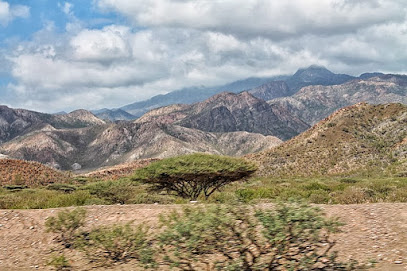
Magasin Chez Farah
Discover the essence of Djibouti at Magasin Chez Farah, where unique gifts and local crafts await every traveler seeking memorable souvenirs.
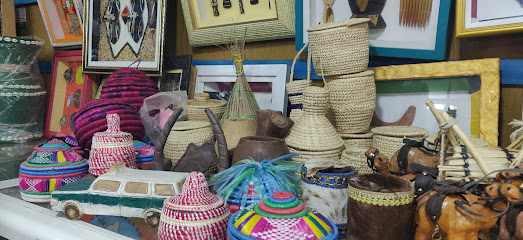
DICO MEUBLES / CHEZ DICO
Explore DICO MEUBLES in Djibouti for exquisite furniture and electronics, offering a diverse selection to meet all your home and office needs.
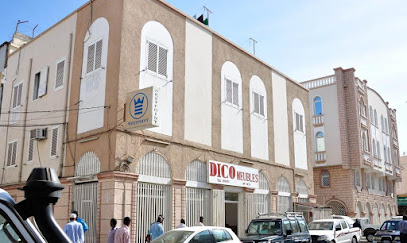
Bait Shops
Explore the vibrant waters of Djibouti with Bait Shops, your go-to source for fishing gear and local expertise.
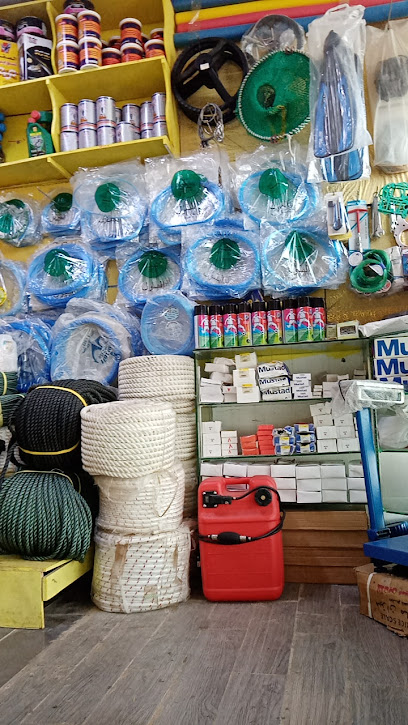
ALMOUKTAR PERFUMES
Experience the rich scents and unique fragrances of Almouktar Perfumes, a must-visit shopping destination in Djibouti.
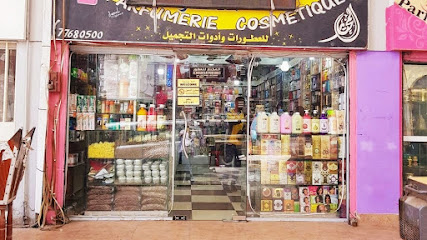
Godoria Shop
Explore the vibrant fashion scene at Godoria Shop, a premier clothing store in Djibouti offering unique styles and cultural attire.
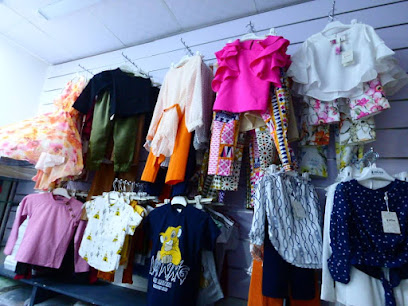
AL-JAZERAH COSMETIC
Explore Al-Jazerah Cosmetic in Djibouti for an exquisite selection of local fragrances and a memorable shopping experience in a vibrant atmosphere.
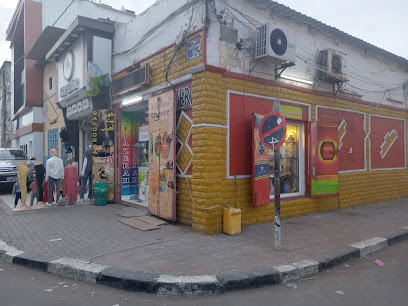
كنكلري دنجي المهوليه Quincaillerie DINGQI Al Maholiya
Discover quality building materials at Quincaillerie DINGQI Al Maholiya in Djibouti, your one-stop shop for construction essentials.

Ali Baba Treasures
Explore the vibrant gift shop Ali Baba Treasures in Djibouti for unique souvenirs and local crafts that showcase the culture and artistry of the region.
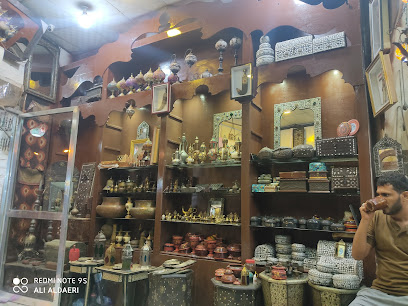
Sacdiya sharaf
Explore Sacdiya Sharaf in Djibouti for unique souvenirs and local crafts that embody the spirit of your travels.

Essential bars & hidden hideouts
11 Degrees North
Unwind and enjoy the vibrant nightlife at 11 Degrees North, a must-visit pub in Djibouti offering a warm atmosphere and local flavors.
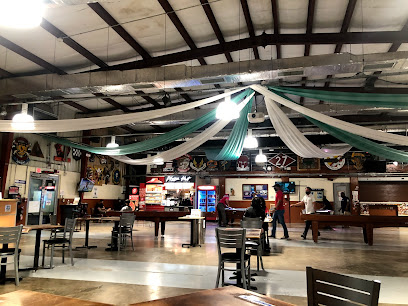
QG Pub & Resto
Experience the best of Djibouti's barbecue culture at QG Pub & Resto, a lively dining spot perfect for tourists seeking local flavors.
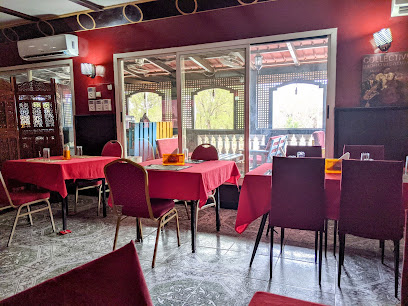
Timeout Restaurant and Sport Bar
Experience the vibrant culinary scene at Timeout Restaurant and Sport Bar in Djibouti, where local flavors meet international favorites.
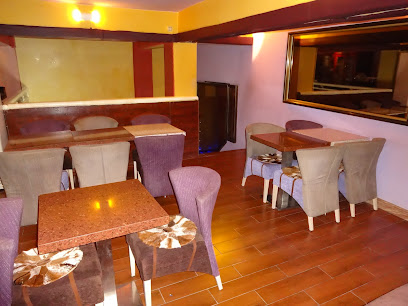
Cantina
Experience the vibrant nightlife of Djibouti at Cantina, where locals and tourists unwind over drinks in a lively atmosphere.

Safari Club Kempinski
Discover the vibrant nightlife at Safari Club Kempinski, where luxury meets relaxation in the heart of Djibouti.

Crystal Lounge Sheraton Djibouti
Discover the perfect blend of luxury and local vibes at Crystal Lounge Sheraton Djibouti, where exquisite cuisine meets a vibrant atmosphere.
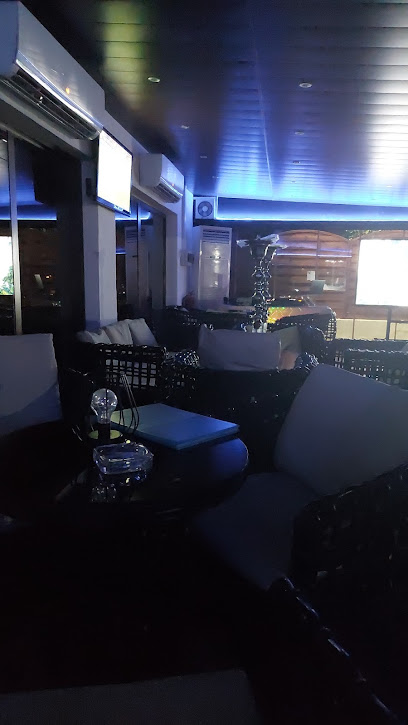
A la Brise de Mer
Discover the flavors of Djibouti at A la Brise de Mer, where culinary excellence meets breathtaking coastal views.
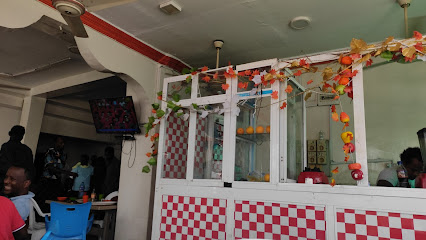
Pub Palmier Zink
Discover the vibrant atmosphere of Pub Palmier Zink in Djibouti, where locals and tourists unite for a night of fun and refreshing drinks.
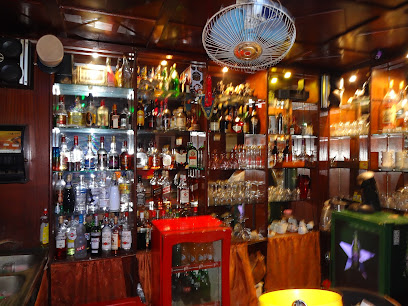
The Goat Locker
Discover the vibrant atmosphere and refreshing drinks at The Goat Locker, Djibouti's unique bar experience that captures local culture.

B B S Lounge (Bar By Sing's)
Discover the lively nightlife at B B S Lounge in Djibouti, where great drinks and a vibrant atmosphere await you every evening.

Scotch djibouti
Experience the vibrant nightlife at Scotch Djibouti, the ultimate bar for drinks and socializing in the heart of Djibouti.
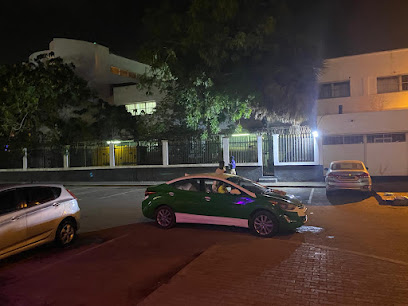
TE'AMO,VBawadi Mall
Discover the vibrant nightlife of Djibouti at TE'AMO in VBawadi Mall, where refreshing drinks and a lively atmosphere await you.
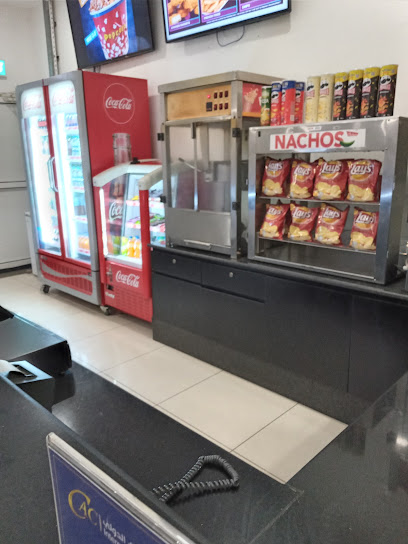
Cafétéria-Restaurant-Supérette
Explore the flavors of Djibouti at Cafétéria-Restaurant-Supérette, where tradition meets taste in a cozy setting.
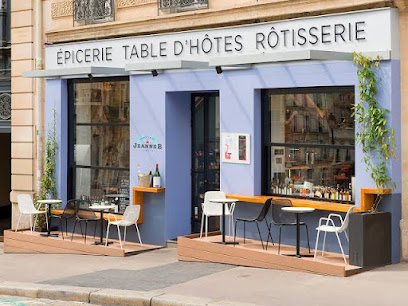
Satta niwas
Experience the vibrant nightlife of Djibouti at Satta Niwas, a charming bar offering local flavors and a welcoming atmosphere.

Local Phrases about Goda Mountains
-
- HelloSalaama
[sah-lah-mah] - GoodbyeNabad gelyo
[nah-bahd gehl-yoh] - YesHaa
[hah] - NoMaya
[mah-yah] - Please/You're welcomeFadlan
[fad-lahn] - Thank youMahadsanid
[mah-had-sah-need] - Excuse me/SorryFadlan
[fad-lahn] - How are you?Sidee tahay?
[see-day tah-hay?] - Fine. And you?Nabad. Iiyadu?
[nah-bahd. ee-yah-doo?] - Do you speak English?Ma ku hadlayaa af Ingiriis?
[mah koo hahd-lah-yah ahf een-gee-rees?] - I don't understandMa fahmin
[mah fahm-een]
- HelloSalaama
-
- I'd like to see the menu, pleaseWaan arki lahaa menuka, fadlan
[wahn ar-kee lah-hah menu-kah, fad-lahn] - I don't eat meatAniga ma cunin hilib
[ah-nee-gah mah choo-neen hee-leeb] - Cheers!Caano
[chah-noh] - I would like to pay, pleaseWaan bixi lahaa, fadlan
[wahn beex-ee lah-hah, fad-lahn]
- I'd like to see the menu, pleaseWaan arki lahaa menuka, fadlan
-
- Help!Kaalmaha!
[kah-ahl-mah-hah!] - Go away!Tago!
[tah-goh!] - Call the Police!Waa gacantiisa!
[wah gah-chan-tee-sah!] - Call a doctor!Waa dhaqanka!
[wah dah-hahn-kah!] - I'm lostWaan joogay
[wahn joh-gahy] - I'm illWaan kala qaybsaday
[wahn kah-lah kah-yeb-sah-day]
- Help!Kaalmaha!
-
- I'd like to buy...Waan iibin lahaa...
[wahn ee-been lah-hah...] - I'm just lookingAniga waxaan arki lahaa
[ah-nee-gah wah-xahn ar-kee lah-hah] - How much is it?Qadarkeey maaha?
[kah-dar-kay mah-hah?] - That's too expensiveTani waa qadar ah
[tah-nee wah kah-dar ah] - Can you lower the price?Ma fiican kari karto qiimaha?
[mah fee-cahn kah-ree kar-toh kee-mah-hah?]
- I'd like to buy...Waan iibin lahaa...
-
- What time is it?Waa maxaa waqtiga?
[wah mah-hah wahk-tee-gah?] - It's one o'clockWaa hal-abuurnimo
[wah hahl-ah-boor-nee-moh] - Half past (10)Dhex mar
[thex mahr] - MorningSubax
[soo-bahx] - AfternoonGalab
[gah-lahb] - EveningHabeen
[hah-been] - YesterdayShalay
[shah-lahy] - TodayMaanta
[mah-ahn-tah] - TomorrowBerri
[beh-ree] - 1Kow
[kow] - 2Laba
[lah-bah] - 3Seddex
[sehd-dehx] - 4Afar
[ah-fahr] - 5Shan
[shahn] - 6Lix
[leex] - 7Todoba
[toh-doh-bah] - 8Siddeed
[seed-deed] - 9Sagaal
[sah-gahl] - 10Toban
[toh-bahn]
- What time is it?Waa maxaa waqtiga?
-
- Where's a/the...?Haa sidee...?
[hah see-day...?] - What's the address?Waa maxaa cadda?
[wah mah-hah chahd-dah?] - Can you show me (on the map)?Ma ku tusayaa (khariidadka)?
[mah koo too-sah-yah (kah-ree-ee-ad-kah)?] - When's the next (bus)?Marka ayaa soo socda (bas)?
[mahr-kah ah-yah soh sohch-dah (bahs)?] - A ticket (to ....)Tikiti (ilaa ....)
[tee-kee-tee (ee-lah ....)]
- Where's a/the...?Haa sidee...?
History of Goda Mountains
-
The Goda Mountains have been home to various human settlements for millennia. Archaeological evidence suggests that early hunter-gatherer communities lived in the region as far back as the Stone Age. Rock shelters and caves in the mountains have revealed tools and artifacts that provide insight into prehistoric life.
-
The indigenous Afar people have inhabited the Goda Mountains for centuries. Known for their nomadic lifestyle and rich oral traditions, the Afar have a deep spiritual connection to the land. The mountains are considered sacred, and traditional ceremonies often take place at significant natural landmarks within the range.
-
During the late 19th and early 20th centuries, the Goda Mountains and the surrounding areas came under French colonial rule. The French established outposts and conducted geological surveys, which led to the discovery of valuable mineral resources. The colonial period also saw the construction of roads and infrastructure that connected the remote mountains to the coastal cities.
-
During World War II, the strategic location of Djibouti, including the Goda Mountains, became significant. The French and Allied forces utilized the high vantage points offered by the mountains to monitor and control movements in the region. Remnants of wartime bunkers and observation posts can still be found in some parts of the mountains.
-
Following Djibouti's independence from France in 1977, the Goda Mountains have continued to be a vital part of the nation's cultural and ecological heritage. Efforts have been made to preserve the unique biodiversity of the mountains, which are home to rare plant and animal species. The region has also become a popular destination for eco-tourism and scientific research.
-
The Goda Mountains are not only historically and culturally significant but also ecologically vital. The region boasts a unique ecosystem with endemic species of flora and fauna. Conservation efforts have been implemented to protect this biodiversity, including the establishment of protected areas and national parks. These initiatives aim to balance human activity with the preservation of natural habitats.
Goda Mountains Essentials
-
The Goda Mountains are located in the Tadjoura Region of Djibouti. The nearest international airport is Djibouti-Ambouli International Airport, approximately 120 kilometers away. From the airport, you can hire a taxi or rent a car to reach the Goda Mountains. Alternatively, you can take a bus from Djibouti City to Tadjoura and then arrange local transportation to the mountains. The journey by road typically takes around 3 to 4 hours.
-
Within the Goda Mountains, transportation options are limited. Renting a car or hiring a local guide with a vehicle is the most convenient way to explore the area. Some parts of the mountains are accessible only by foot, so be prepared for hiking. Local buses and shared taxis (known as 'bush taxis') operate between major towns and villages, but they can be infrequent and crowded.
-
The official currency in Djibouti is the Djiboutian Franc (DJF). Credit cards are accepted in some hotels and larger establishments, but it is advisable to carry cash, especially when traveling to remote areas like the Goda Mountains. ATMs are available in Djibouti City and Tadjoura, but they may not be reliable, so ensure you have enough cash before heading to the mountains.
-
The Goda Mountains are generally safe for tourists. However, it is advisable to take standard precautions. Avoid walking alone at night in unfamiliar areas and keep an eye on your belongings. While there are no specific high-crime areas targeting tourists, it is best to stay vigilant and aware of your surroundings. Always inform someone about your travel plans, especially if you are hiking in remote areas.
-
In case of emergency, dial 19 for immediate assistance. The local police station and medical facilities are available in Tadjoura. It is recommended to have travel insurance that covers medical emergencies. For minor health issues, there are pharmacies in Tadjoura where you can purchase over-the-counter medications. Carry a first-aid kit when hiking in the mountains.
-
Fashion: Do dress modestly, especially in rural and traditional areas. Avoid wearing revealing clothing. Religion: Do respect local customs and traditions. When visiting religious sites, dress conservatively and remove your shoes before entering. Public Transport: Do be respectful and offer your seat to elderly passengers. Don't eat or drink on public transport. Greetings: Do greet people with a handshake or a slight bow. Using your right hand is considered polite. Eating & Drinking: Do try local delicacies and accept food offerings graciously. Don't refuse hospitality, as it is considered impolite.
-
To experience the Goda Mountains like a local, visit the small villages scattered throughout the region. Engage with the local Afar and Issa communities, who are often friendly and willing to share stories about their culture and traditions. Don't miss the opportunity to hike to the Day Forest National Park, which is home to unique flora and fauna. For a unique experience, try traditional Djiboutian dishes such as Skoudehkaris (spiced rice with lamb) and Lahoh (a type of flatbread).
Nearby Cities to Goda Mountains
-
Things To Do in Arta
-
Things To Do in Djibouti City
-
Things To Do in Obock
-
Things To Do in Loyada
-
Things To Do in Ali Sabieh
-
Things To Do in Dikhil
-
Things To Do in Aden
-
Things To Do in Dire Dawa
-
Things To Do in Ibb
-
Things To Do in Hargeisa
-
Things To Do in Harar
-
Things To Do in Dhamar
-
Things To Do in Mekele
-
Things To Do in Lalibela
-
Things To Do in Sana'a






